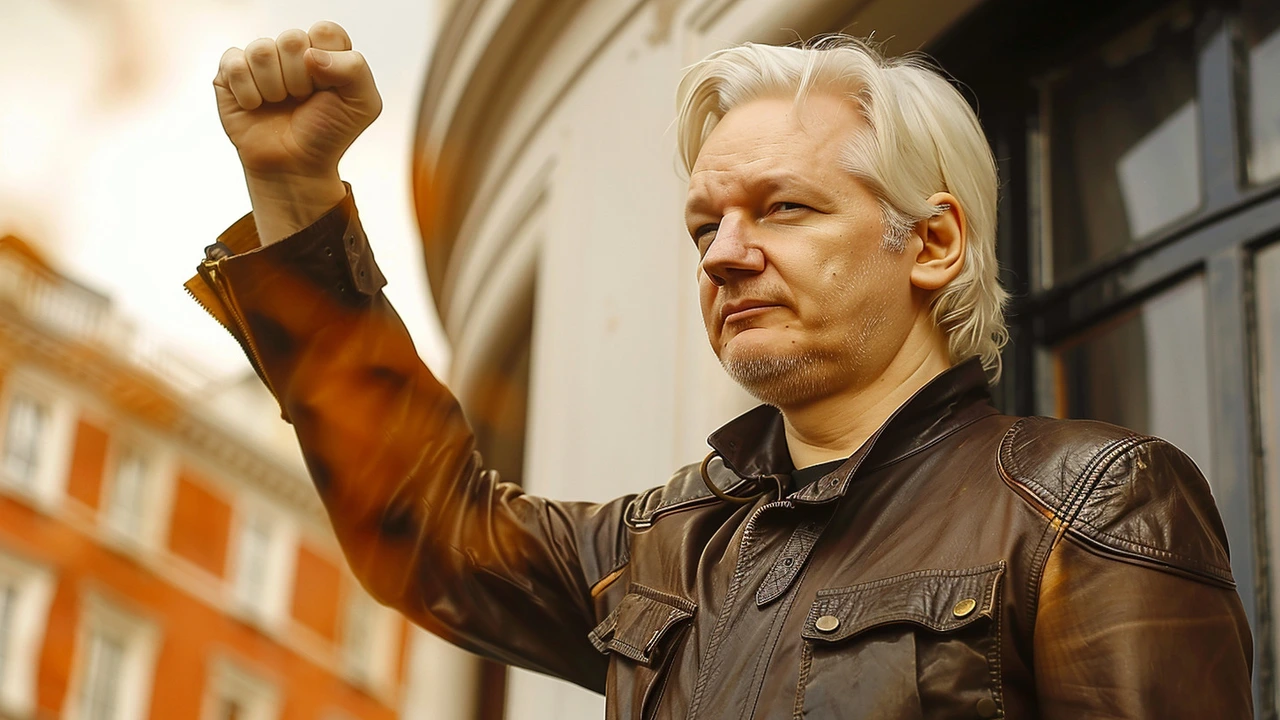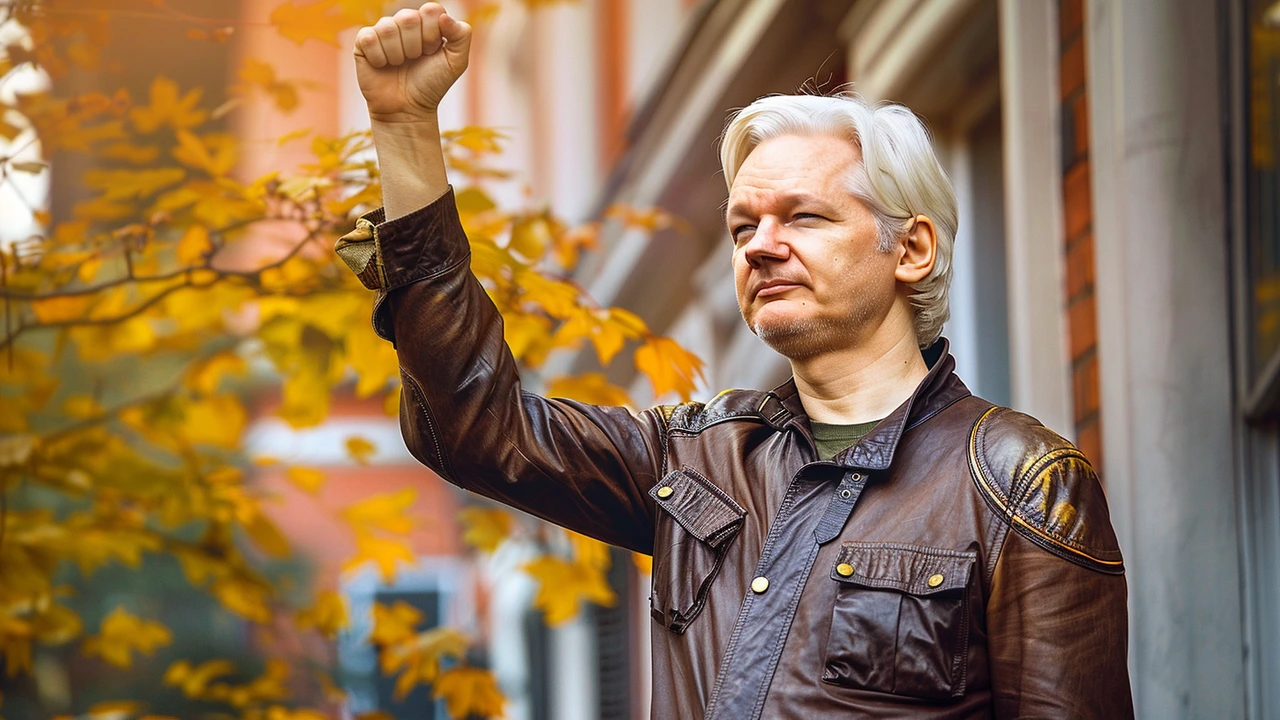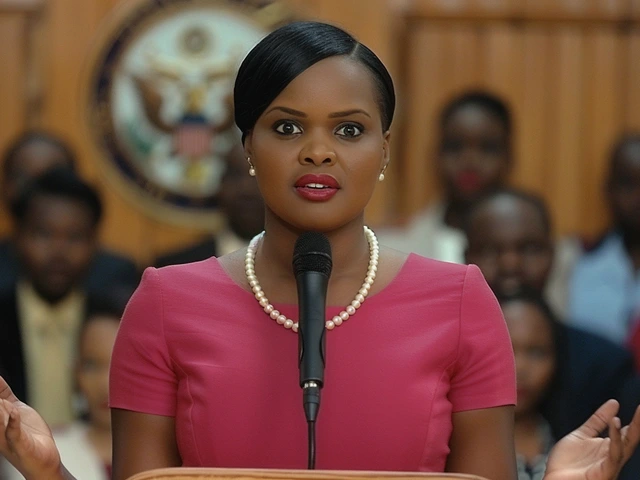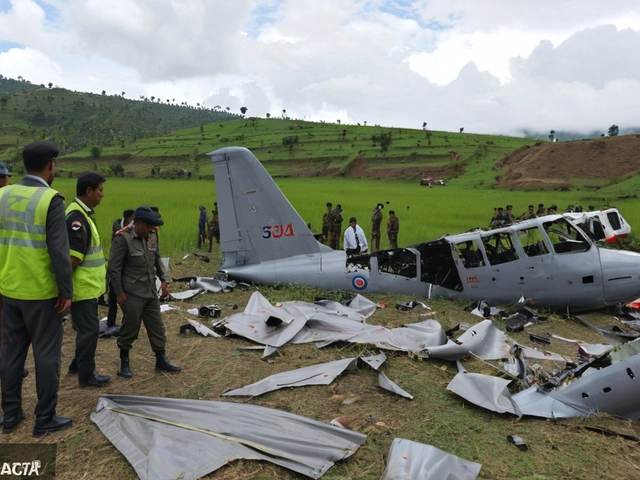Julian Assange Released from Belmarsh Prison: A New Chapter for Press Freedom

Julian Assange's Release Marks a Turning Point for Journalistic Freedom
On a significant day in global news, Julian Assange, the co-founder of WikiLeaks, walked out of Belmarsh prison after spending 1,901 days in detention. His release, which has been celebrated by press freedom advocates worldwide, comes after judges at the UK High Court granted him the right to appeal his extradition to the United States. The decision was made on May 20, but it wasn't until June 24 that Assange was granted bail. Following his release, he was spotted boarding a plane at Stansted airport, destined for Australia.
Assange's journey to freedom has been anything but ordinary. It was the result of relentless campaigning by grassroots organizers, press freedom advocates, legislators, and leaders from various political backgrounds. Even the United Nations played a role. This broad coalition of supporters managed to orchestrate negotiations with the US Department of Justice, leading to a deal that remains to be formally finalized.
The Charges that Imprisoned Assange
Julian Assange is best known for his role in exposing US war crimes in Iraq and Afghanistan through WikiLeaks. His journalistic endeavors brought to light severe misconduct by powerful entities, earning him both accolades and severe punishment. His imprisonment was a stark reminder of the risks faced by journalists in pursuit of truth. Held in Belmarsh, a high-security prison often referred to as the UK’s Guantanamo Bay, Assange endured nearly five years of harsh detention conditions.
The charges against him were steeped in controversy, focusing largely on his role in publishing classified military documents. Critics argued that his actions were an essential act of journalism, aimed at holding governments accountable. Supporters of WikiLeaks' mission saw the charges as an attempt to stifle press freedom and punish the dissemination of truths inconvenient to powerful nations. The potential extradition to the United States hung over him like a dark cloud, threatening a future of uncertain duration within the US penal system.
A Global Movement
Assange’s release is credited to a global campaign that mobilized an impressive spectrum of supporters. Prominent personalities, political leaders, human rights organizations, and press freedom groups joined forces in an unprecedented show of unity. MERA25 and DiEM25, both organizations co-founded by Assange, played significant roles in the campaign. Their mission focused not just on Assange’s freedom, but also on advocating for political prisoners worldwide.
The impact of these efforts can be seen in the negotiations with the US Department of Justice, which led to an agreement contributing to his release. While the specifics of the deal remain undisclosed, the announcement of a resolution provided a beacon of hope to many. This outcome is deemed a crucial victory for press freedom and is expected to influence the ongoing debate surrounding the rights of journalists and whistleblowers.

Hope and Next Steps
The release of Julian Assange is seen as a beacon of hope by many fighting for press freedoms and human rights. For Assange, his release marks the beginning of a new chapter. As he heads to Australia, the country that he once called home, questions about his next steps loom large. Will he continue to be an active figure in the fight for transparency and accountability? Only time will tell.
The broader implications of Assange’s release are profound. It sets a precedent for how cases involving journalists and whistleblowers may be handled in the future. Advocates argue that protecting those who reveal uncomfortable truths is essential for maintaining a free and informed society. This victory, hard-fought and well-earned, serves as a reminder that collective efforts can indeed lead to significant change.
As we reflect on Assange's plight and subsequent release, it is vital to acknowledge the power of united action. His freedom symbolizes hope not only for him but for countless others caught in similar circumstances worldwide. In an age where truth is often obscured by power, standing united in defense of journalistic freedom is more important than ever.






Jared Greenwood
June 25, 2024 AT 20:33Assange's release is a flagrant capitulation to an international media cabal that erodes sovereign security protocols; the entire scenario underscores a dangerous precedent where whistle‑blowing is weaponized to undermine state‑run intelligence frameworks, and any attempt to glorify his actions simply fuels the hegemonic narrative that no nation can enforce its own classified boundaries.
Sally Sparrow
June 26, 2024 AT 20:09The narrative surrounding Assange is riddled with self‑congratulatory rhetoric that masks a fundamental flaw: the selective outrage over legal due process versus the unexamined celebration of a figure who repeatedly flouted the rule of law, thereby eroding the very standards he purports to defend.
Eric Yee
June 27, 2024 AT 19:46It's kinda wild how a single guy can become a symbol for so many while the rest of us just keep on living our lives-respect to the folks who keep the conversation going but let's not forget the everyday struggles that get lost in the hype.
Sohila Sandher
June 28, 2024 AT 19:23Congrats to the team behind this big win, it really shows that when we all stick together we can make a difference. Definately keep the momentum going and keep fighting for truth and justice!
Anthony Morgano
June 29, 2024 AT 18:59Wow what a rollercoaster ride for Assange, his story keeps reminding us that the battle for transparency never really ends :) It's crazy how many people rallied together for this cause.
Holly B.
June 30, 2024 AT 18:36While acknowledging the legal complexities surrounding the case, it remains essential to recognize the broader implications for journalistic integrity and the protection of investigative reporting under international law.
Lauren Markovic
July 1, 2024 AT 18:13For anyone interested, the Committee to Protect Journalists has a detailed timeline on Assange's legal battles – a good read if you want to understand the full scope of the implications. 😊
Kathryn Susan Jenifer
July 2, 2024 AT 17:49Oh great, another chapter in the saga of the "heroic whistleblower" – as if the world hasn't seen enough drama, now we get to watch the saga continue with popcorn in hand.
Jordan Bowens
July 3, 2024 AT 17:26Seems like a long story for a short resolution.
Kimberly Hickam
July 4, 2024 AT 17:03The release of Julian Assange, while celebrated by certain factions, invites a profound interrogation of the epistemological foundations upon which modern journalism is built.
One must consider whether the glorification of his methods signifies a genuine commitment to truth or merely an opportunistic appropriation of dissent for ideological posturing.
The dialectic between state secrecy and public's right to know has historically been mediated by a delicate balance, a balance now seemingly tipped by the sensationalism surrounding this case.
Moreover, the legal mechanisms employed throughout his detention reveal systemic asymmetries that challenge the purported impartiality of judicial processes.
It is insufficient to declare his freedom a victory without scrutinizing the precedent it sets for future whistleblowers navigating the treacherous terrain of classified disclosures.
The international coalition that rallied for his release illustrates a remarkable convergence of civil society actors, yet it also underscores a potential instrumentalization of his narrative for broader geopolitical agendas.
From a philosophical standpoint, the very concept of information as a public good becomes contested when its dissemination is framed as subversive.
In this context, the moral calculus governing the ethics of leaks demands a nuanced assessment that transcends binary hero‑villain archetypes.
We must, therefore, interrogate the role of digital platforms that facilitated the original publication and question the responsibilities they bear in the aftermath.
The emergent discourse surrounding accountability, transparency, and national security reveals an intricate tapestry of competing imperatives.
It would be prudent for policymakers to formulate robust safeguards that protect legitimate investigative journalism while deterring malicious espionage.
The lesson of Assange's odyssey, if internalized, could catalyze reforms that reinforce freedom of the press without compromising state interests.
Conversely, ignoring the complexities embedded in his saga risks perpetuating a simplistic mythos that may erode public trust in journalistic institutions.
As scholars and practitioners reflect on this watershed moment, the imperative remains to foster a media ecosystem resilient to both censorship and sensationalism.
Ultimately, the dialogue sparked by his release should serve as a catalyst for constructive evolution rather than a mere anecdote in the annals of press freedom.
Gift OLUWASANMI
July 5, 2024 AT 16:39Assange's theatrics are nothing more than a convenient circus act for the left‑leaning intelligentsia, a glossy distraction that masks the real peril of unchecked data dumping on national security frameworks.
Keith Craft
July 6, 2024 AT 16:16Alas, the grand stage of global politics has witnessed yet another melodramatic act, where the protagonist, once bound by steel, now steps into the limelight with a flourish that would make even the most seasoned tragedian pause in awe.
Kara Withers
July 7, 2024 AT 15:53Observing the developments, it's clear that while Assange's release may inspire advocates of transparency, it also raises legitimate concerns about the mechanisms that safeguard classified information and the ethical boundaries of disclosure.
boy george
July 8, 2024 AT 15:29Freedom thrives when rules are questioned
Cheryl Dixon
July 9, 2024 AT 15:06One could argue that the uproar around Assange is less about press freedom than it is about the human penchant for myth‑making, a tendency to elevate individuals into symbols regardless of the messy realities they embody.
Ramesh Modi
July 10, 2024 AT 14:43It is absolutely incomprehensible!!! How can we, as a conscientious society, stand idle while a man accused of massive leaks roams free!!! The moral calculus is glaringly evident; justice must not be compromised for the sake of idealistic romanticism!!!
Ghanshyam Shinde
July 11, 2024 AT 14:19Oh sure, let’s just hand out pardons to anyone who can stir up a media storm, because that’s how a stable society works.
Charlotte Louise Brazier
July 12, 2024 AT 13:56While your optimism is appreciated, it's crucial to channel that energy into concrete actions that safeguard both whistleblowers and the integrity of the institutions they challenge; otherwise enthusiasm remains hollow.